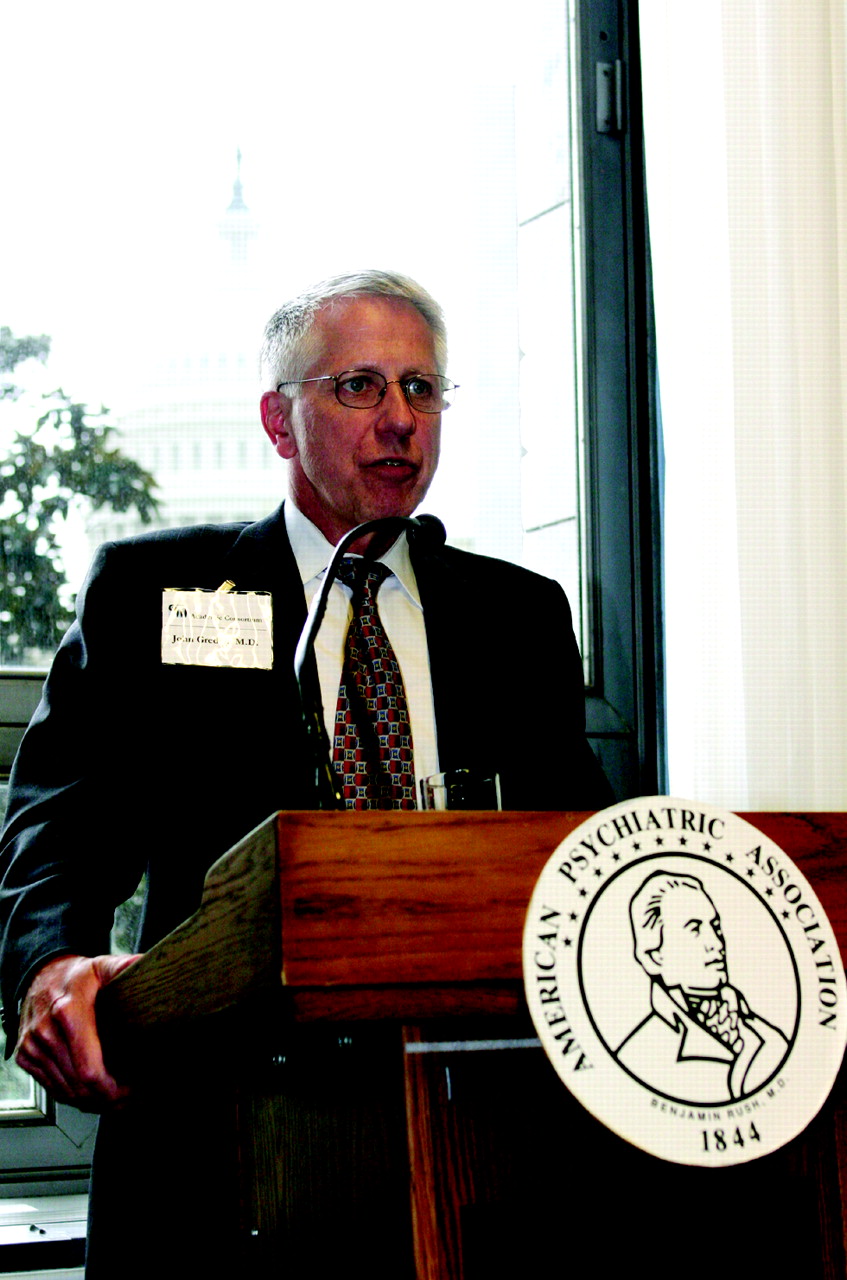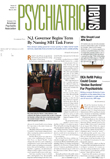The National Institutes of Health (NIH) will have one of the lowest increases in its biomedical research budget in more than a decade unless Congress approves the increase for Fiscal 2006 recommended by an APA-led group of mental health advocacy organizations.
That message was brought to Capitol Hill on April 12 and 13 by APA's Academic Consortium. The consortium, whose member organizations were represented by 30 psychiatric researchers, educators, clinicians, and patients, told members of Congress about the benefits of funding biomedical research and the impact of reduced spending on NIH.
The consortium recommends that Congress increase NIH's budget by 6 percent over its Fiscal 2005 budget. President Bush has proposed an increase of only 0.7 percent for Fiscal 2006.
Among the organizations represented were the National Alliance for the Mentally Ill, American Academy of Child and Adolescent Psychiatry, American Association for Geriatric Psychiatry, Depression and Bipolar Support Alliance, and American Association of Chairs of Departments of Psychiatry. The meeting was organized by APA's Department of Government Relations (DGR).
“The Academic Consortium is critical to psychiatry and our ability to help our patients and families,” APA President Michelle Riba, M.D., told Psychiatric News. “Without investing in research and training, the next generation of psychiatrist scientists will not be able to provide cutting-edge care to patients.”
Riba, APA Medical Director James H. Scully Jr., M.D., and consortium chair John Greden, M.D., welcomed the consortium representatives to the meeting on Capitol Hill.
The group was briefed on the Fiscal 2006 congressional outlook by Mike Zamore, the health legislative assistant to Rep. Patrick Kennedy (D-R.I.). Nora Volkow, M.D., director of the National Institute on Drug Abuse, discussed the institute's research priorities for Fiscal 2006.
Following their Capitol Hill visits, consortium representatives and members of Congress had a chance to meet informally at a reception in the House of Representatives.
At a breakfast briefing the next day, consortium representatives were addressed by Tom Insel, M.D., director of the National Institute of Mental Health; Mark Willenbring, M.D., deputy director of treatment research at the National Institute on Alcohol Abuse and Alcoholism; and Kennedy.
Greden commented to Psychiatric News, “We sent a clear message on Capitol Hill that NIH needs a 6 percent budget increase in Fiscal 2006 and that the longterm benefits will be preserving families, decreasing suicides, improving health outcomes specifically in people with heart disease and the elderly, and enhancing corporate competitiveness by reducing health care costs.”
The Senate adopted an amendment to its budget resolution in March that would increase the NIH budget by $1.5 billion in Fiscal 2006. APA supported the amendment, which was offered by Sens. Arlen Specter (R-Pa.) and Tom Harkin (D-Iowa).
Raymond DePaulo, M.D., the Henry Phipps Professor and Chair of Psychiatry and Behavioral Sciences at Johns Hopkins University, told Psychiatric News that NIH has begun granting smaller awards to researchers.
“The five-year effort to double the NIH budget has enabled researchers to make enormous progress in genetics and molecular science that can lead to new treatments,” said DePaulo. However, stagnant budgets for NIH “in the last few years threaten to slow the pace of innovative research. Fewer young psychiatrists will enter academic research careers because they realize the funding isn't there, or with their enormous school loans, they simply can't afford a research career.” ▪

